Contests & giveaways | June 2013
Each month we share information about special, free, and enjoyable opportunities for you that we feel support the mission of TeachingBooks. This month, we hope you enjoy learning about the following opportunities (in order of deadline):
WIN A FREE COPY…

 I remember it clearly—the day the inspiration for Papa’s Mechanical Fish (Farrar, 2013) fell in my lap. I was sitting cross-legged on the basement floor of the Old Lighthouse Museum in Michigan City, Indiana, rummaging through a box of photographs when a crumbling, decades-old booklet slipped out from a manila folder.
I remember it clearly—the day the inspiration for Papa’s Mechanical Fish (Farrar, 2013) fell in my lap. I was sitting cross-legged on the basement floor of the Old Lighthouse Museum in Michigan City, Indiana, rummaging through a box of photographs when a crumbling, decades-old booklet slipped out from a manila folder. Each month we share information about special, free, and enjoyable opportunities for you that we feel support the mission of TeachingBooks. This month, we hope you enjoy learning about the following opportunities (in order of deadline):
Each month we share information about special, free, and enjoyable opportunities for you that we feel support the mission of TeachingBooks. This month, we hope you enjoy learning about the following opportunities (in order of deadline): Yes, it’s true. I have always loved concept books. ABCs, one-two-threes, reds yellows blues, you name a concept book – chances are, I loved it.
Yes, it’s true. I have always loved concept books. ABCs, one-two-threes, reds yellows blues, you name a concept book – chances are, I loved it. I was describing my research and note-taking process during a recent school visit, when a boy raised his hand and said, “Sounds like you do homework for a living.”
I was describing my research and note-taking process during a recent school visit, when a boy raised his hand and said, “Sounds like you do homework for a living.”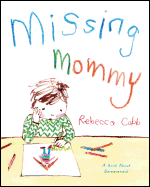 Each month we learn of special, free, and enjoyable opportunities for you that we feel support the mission of TeachingBooks. This month, we hope you enjoy learning about the following opportunities (in order of deadline) ...
Each month we learn of special, free, and enjoyable opportunities for you that we feel support the mission of TeachingBooks. This month, we hope you enjoy learning about the following opportunities (in order of deadline) ... I love doing research when I’m working on a novel, and not just because it’s a great way to procrastinate. Research can be as vital to a work of fiction as it is to nonfiction. It fleshes out your backstory. It helps you make serendipitous connections. It lets you know–truly know–your characters and setting.
I love doing research when I’m working on a novel, and not just because it’s a great way to procrastinate. Research can be as vital to a work of fiction as it is to nonfiction. It fleshes out your backstory. It helps you make serendipitous connections. It lets you know–truly know–your characters and setting.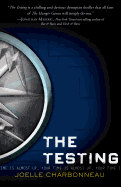 Each month we learn of special, free, and enjoyable opportunities for you that we feel support the mission of TeachingBooks. This month, we hope you enjoy learning about the following opportunities (in order of deadline) ...
Each month we learn of special, free, and enjoyable opportunities for you that we feel support the mission of TeachingBooks. This month, we hope you enjoy learning about the following opportunities (in order of deadline) ... Forty years ago, when I was a young writer, and enjoying some success with my first novel, La Guerre, Yes Sir! (Éditions du jour, 1968), I was invited to write a story for the Canadian Broadcasting Corporation (CBC). I wanted to write about the moment that I felt, for the very first time, that I was my own person—not my mother’s son, not my father’s son—but me, petit Roch.
Forty years ago, when I was a young writer, and enjoying some success with my first novel, La Guerre, Yes Sir! (Éditions du jour, 1968), I was invited to write a story for the Canadian Broadcasting Corporation (CBC). I wanted to write about the moment that I felt, for the very first time, that I was my own person—not my mother’s son, not my father’s son—but me, petit Roch. My first young adult novel, Cadillac Chronicles (Cinco Puntos Press, 2012) tells the story of sixteen-year-old Alex Riley and an ornery old man speeding south in a Cadillac. Alex wants two things: to find his father and a girlfriend with a decent set of breasts. Lester, an old man with an old man’s personality, just wants his freedom. On their wild ride, they both discover what it means to—finally—find a real friend.
My first young adult novel, Cadillac Chronicles (Cinco Puntos Press, 2012) tells the story of sixteen-year-old Alex Riley and an ornery old man speeding south in a Cadillac. Alex wants two things: to find his father and a girlfriend with a decent set of breasts. Lester, an old man with an old man’s personality, just wants his freedom. On their wild ride, they both discover what it means to—finally—find a real friend. I first wrote about Abraham Lincoln ages ago. My book, Lincoln: A Photobiography (Clarion, 1987), was researched during the 1980s, and in 1988, it won the Newbery Medal—the first nonfiction book to receive that award in more than 30 years.
I first wrote about Abraham Lincoln ages ago. My book, Lincoln: A Photobiography (Clarion, 1987), was researched during the 1980s, and in 1988, it won the Newbery Medal—the first nonfiction book to receive that award in more than 30 years.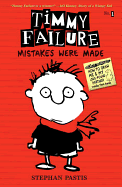 Each month we learn of special, free, and enjoyable opportunities for you that we feel support the mission of TeachingBooks. This month, we hope you enjoy learning about the following opportunities (in order of deadline) ...
Each month we learn of special, free, and enjoyable opportunities for you that we feel support the mission of TeachingBooks. This month, we hope you enjoy learning about the following opportunities (in order of deadline) ... “I think you should write a book called Green.” One evening in 2007, I received an email from Neal Porter. He wrote, “Here’s a title for you and Pete. Green.” Neal Porter is my editor at Macmillan’s Roaring Brook Press. We’ve worked together on each of the 15 books I’ve written and illustrated. In the past, most of the ideas for the books have originated in my journal. This was the first time we began with just a title.
“I think you should write a book called Green.” One evening in 2007, I received an email from Neal Porter. He wrote, “Here’s a title for you and Pete. Green.” Neal Porter is my editor at Macmillan’s Roaring Brook Press. We’ve worked together on each of the 15 books I’ve written and illustrated. In the past, most of the ideas for the books have originated in my journal. This was the first time we began with just a title. In this month’s post we celebrate our multilingual world by showcasing a variety of audio and video recordings from the TeachingBooks.net collection. These multimedia resources allow students and teachers to hear and read stories in a handful of languages. ¡Disfrute!
In this month’s post we celebrate our multilingual world by showcasing a variety of audio and video recordings from the TeachingBooks.net collection. These multimedia resources allow students and teachers to hear and read stories in a handful of languages. ¡Disfrute! In this post, Sharon Creech considers her inspirations for her latest middle-grade novel, The Great Unexpected (Harper 2012), described in School Library Journal as “part realistic fiction, part mystery, and part ghost story.” Enjoy!
In this post, Sharon Creech considers her inspirations for her latest middle-grade novel, The Great Unexpected (Harper 2012), described in School Library Journal as “part realistic fiction, part mystery, and part ghost story.” Enjoy!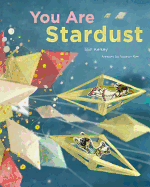 Each month we learn of special, free, and enjoyable opportunities for you that we feel support the mission of TeachingBooks. This month, we hope you enjoy learning about the following opportunities (in order of deadline) ...
Each month we learn of special, free, and enjoyable opportunities for you that we feel support the mission of TeachingBooks. This month, we hope you enjoy learning about the following opportunities (in order of deadline) ... Throughout the ages, individuals and groups have migrated, emigrated, fled, and been forcibly removed from their homelands. When teaching about the movement of people, books can provide students with a variety of perspectives.
In this month’s post, we feature award-winning titles that address the experiences of enslaved Africans, indigenous groups, and recent immigrants, and offer a multimedia resource for each.
Throughout the ages, individuals and groups have migrated, emigrated, fled, and been forcibly removed from their homelands. When teaching about the movement of people, books can provide students with a variety of perspectives.
In this month’s post, we feature award-winning titles that address the experiences of enslaved Africans, indigenous groups, and recent immigrants, and offer a multimedia resource for each. Why do I write about science and nature for young readers? Easy answer. It’s FUN! But making scientific facts fun to read about is a challenge, especially in our modern world filled with iPods, iPads, smart phones, video games, and any number of other electronic distractions. I try to use storytelling techniques to grab my audience.
Why do I write about science and nature for young readers? Easy answer. It’s FUN! But making scientific facts fun to read about is a challenge, especially in our modern world filled with iPods, iPads, smart phones, video games, and any number of other electronic distractions. I try to use storytelling techniques to grab my audience. Snakes are tricky creatures, both to photograph and to handle. Their long thin bodies and surface-hugging habits don't necessarily create the best photographic compositions, and their nervous natures don’t permit easy interaction, especially with those of us carrying cameras.
Snakes are tricky creatures, both to photograph and to handle. Their long thin bodies and surface-hugging habits don't necessarily create the best photographic compositions, and their nervous natures don’t permit easy interaction, especially with those of us carrying cameras.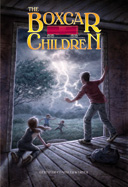 One child (ages 5-15) will win a small voice part in the animated film version of The Boxcar Children by Gertrude Chandler Warner!
One child (ages 5-15) will win a small voice part in the animated film version of The Boxcar Children by Gertrude Chandler Warner!